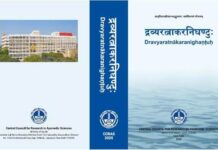Researchers at the Indian Institute of Technology (IIT) Guwahati have developed a water-repellent, conductive textile capable of converting electricity and sunlight into heat. This innovation aims to keep users warm in extremely cold conditions, reducing serious health risks such as arterial blood clotting, breathing difficulties, and weakened immunity.
Addressing Cold-Related Health Risks
Studies show that deaths caused by extreme cold outnumber those from extreme heat. Prolonged exposure to low temperatures can lead to severe health complications, making effective heating solutions essential for people in cold environments.
Efficient Heat Generation for Over 10 Hours
The textile can generate heat using a small rechargeable battery or solar energy. It maintains a temperature between 40°C and 60°C for more than 10 hours, ensuring sustained warmth for users.
Applications in Wearable Technology and Beyond
The research team tested the textile in knee and elbow bands. This demonstrated its potential for individuals working in cold conditions and for arthritis patients needing localized heat therapy. Beyond wearable technology, the material has other applications. It can be used for on-demand water heating and for accelerating chemical reactions by wrapping it around reaction vessels.
Future Development and Industry Collaboration
The IIT Guwahati researchers have filed an Indian patent for their innovation. They are now working on integrating it with a miniaturized electronic circuit to develop viable products. They are also seeking industry collaborations to bring this technology to market, particularly for dry thermotherapy applications.























